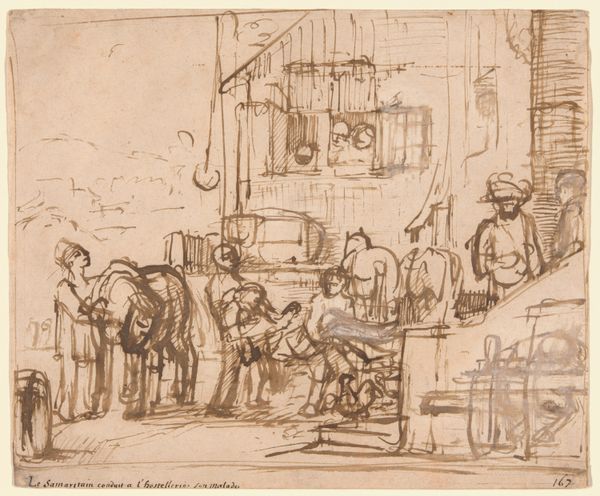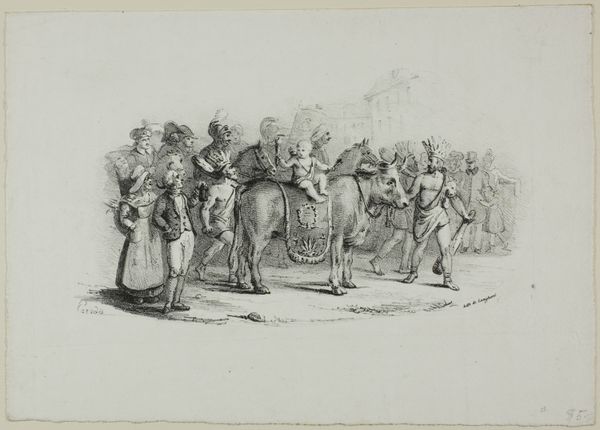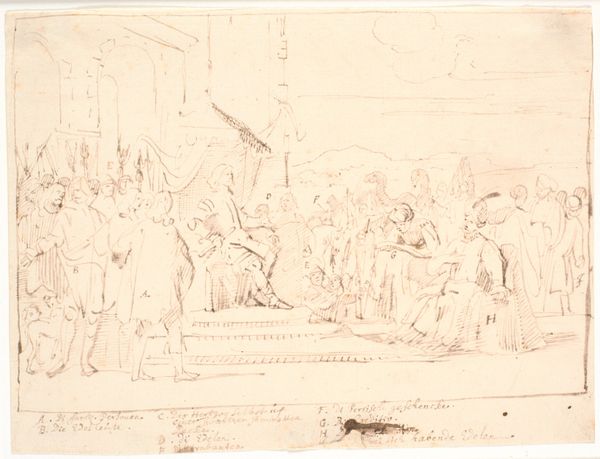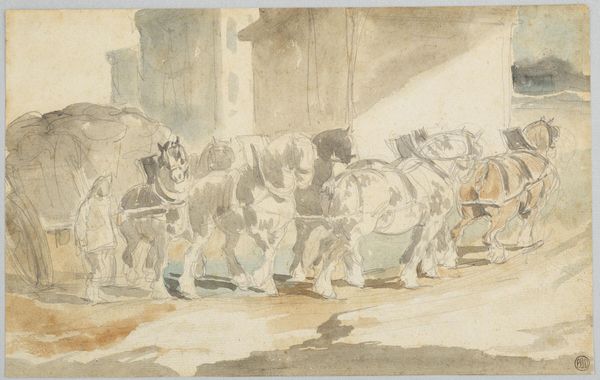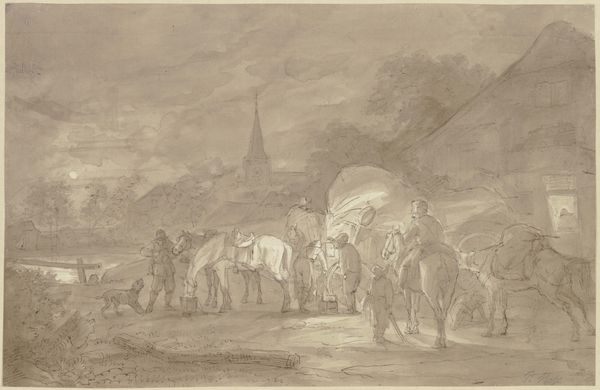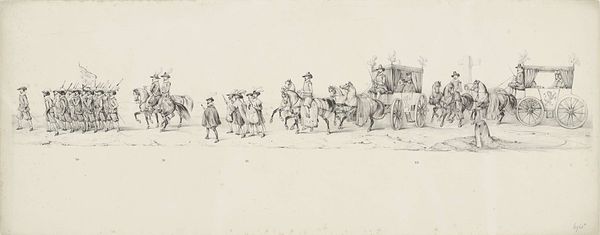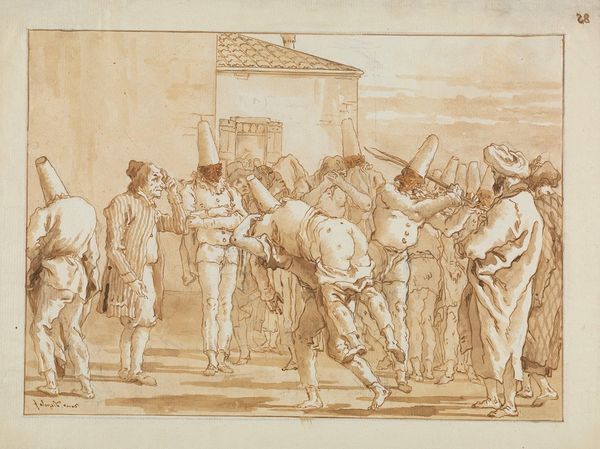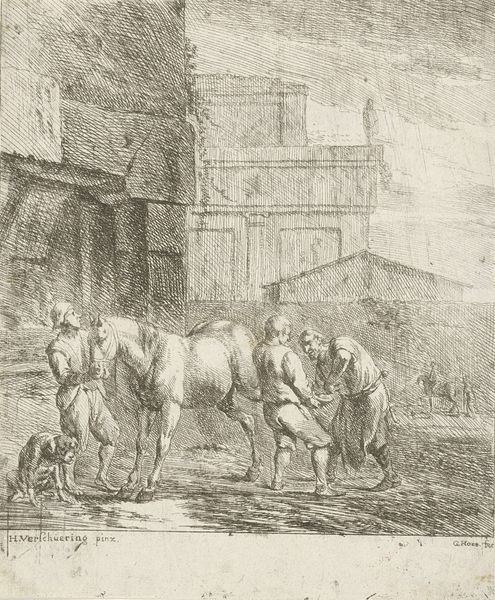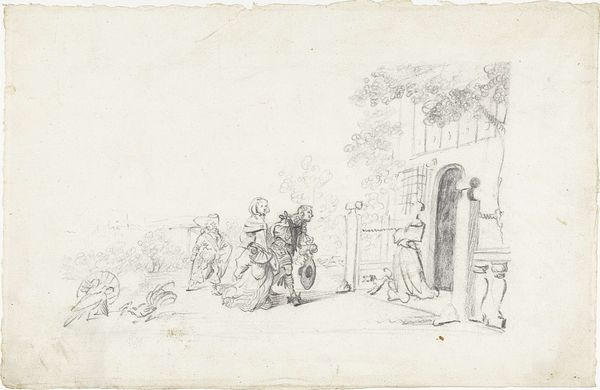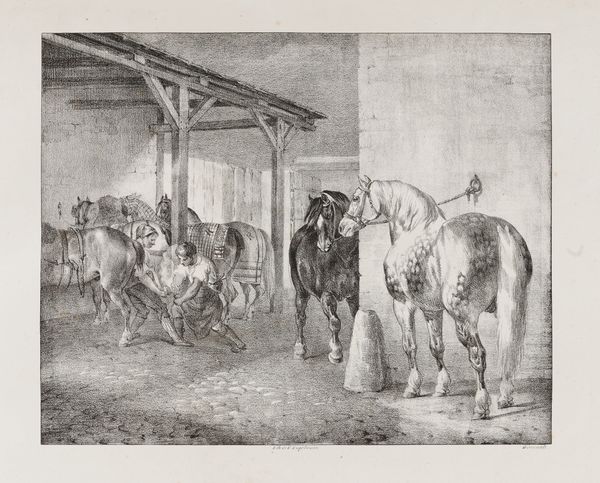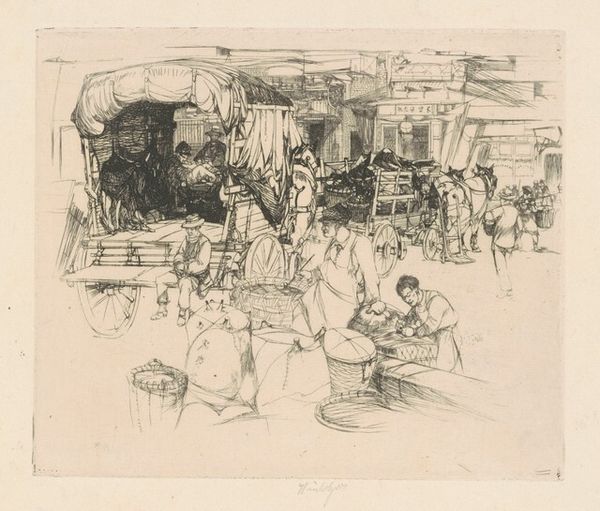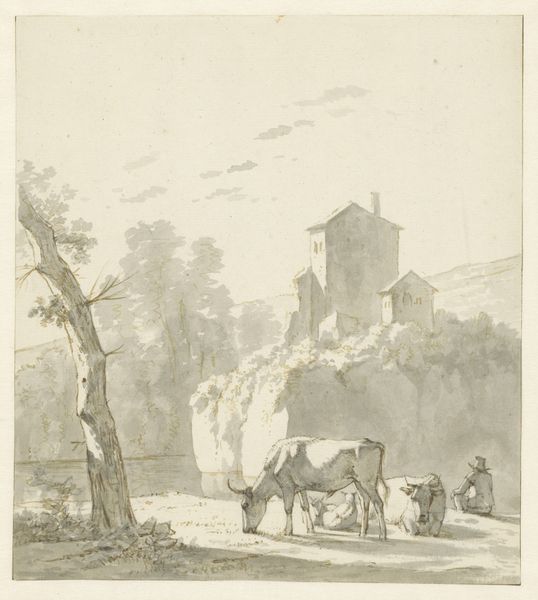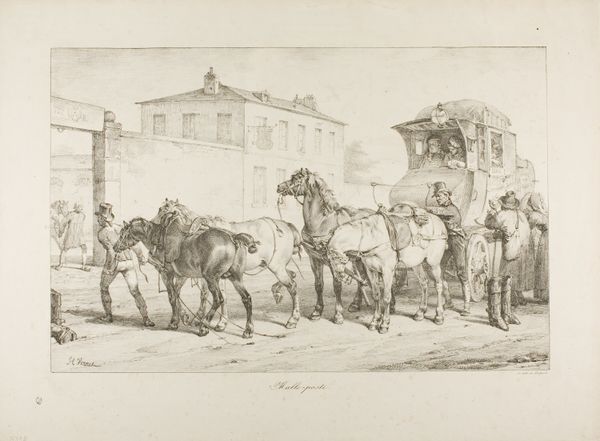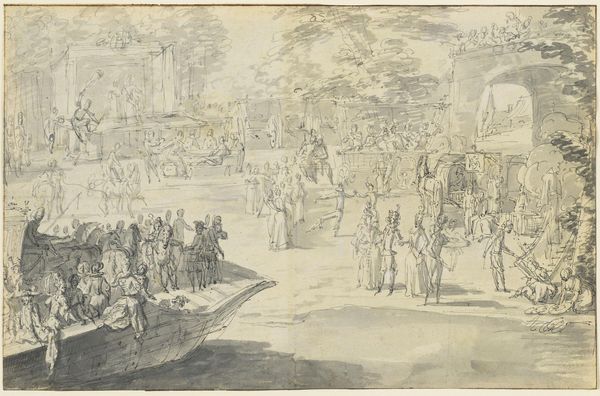
drawing, pencil
#
drawing
#
pencil sketch
#
landscape
#
romanticism
#
pencil
#
cityscape
#
genre-painting
#
realism
Dimensions: height 78 mm, width 127 mm
Copyright: Rijks Museum: Open Domain
Editor: This is "Enkele personen bij een paard op straat," which translates to "Several people with a horse in the street," by Pieter van Loon, created in 1842. It's a pencil drawing. I’m struck by its understated simplicity, like a snapshot of daily life. What jumps out at you when you look at it? Curator: It's fascinating how van Loon captures a sense of urban life with such economy. The pencil sketch aesthetic lends it a certain immediacy, suggesting it might be a scene he encountered and quickly recorded. Given the date, 1842, the Netherlands was undergoing significant social and economic changes. What social classes or roles might these figures represent? Do you notice any symbols that speak to that era? Editor: Well, the figures seem fairly ordinary; not particularly wealthy, perhaps working class citizens meeting by what appear to be goods ready for transport or sale, and a weary-looking horse that is ready for transport. Do you think its public display meant anything specific back then? Curator: Absolutely. Genre paintings and cityscapes like this played a critical role in shaping a sense of national identity. Depicting ordinary people and everyday scenes legitimized their place within the nation. This drawing perhaps idealizes the humble lives of those involved in trade and transport, implicitly commenting on the virtues of hard work and civic participation. What do you make of the almost documentary style versus what could be construed as "art"? Editor: I see what you mean. I hadn't considered the national identity aspect. It's interesting to think of a simple street scene having that kind of political weight. Curator: Precisely. It shows how art isn't created in a vacuum, and its presentation reflects and reinforces the prevailing ideologies. Looking closely at the marks and textures in relation to socio-political factors really gives one a new view of the image! Editor: It definitely changes my perspective; thanks for pointing that out! It is clear to me that just looking isn't enough to begin to understanding, the historical context gives me insight into not just the piece itself, but what it represents as a symbol!
Comments
No comments
Be the first to comment and join the conversation on the ultimate creative platform.
